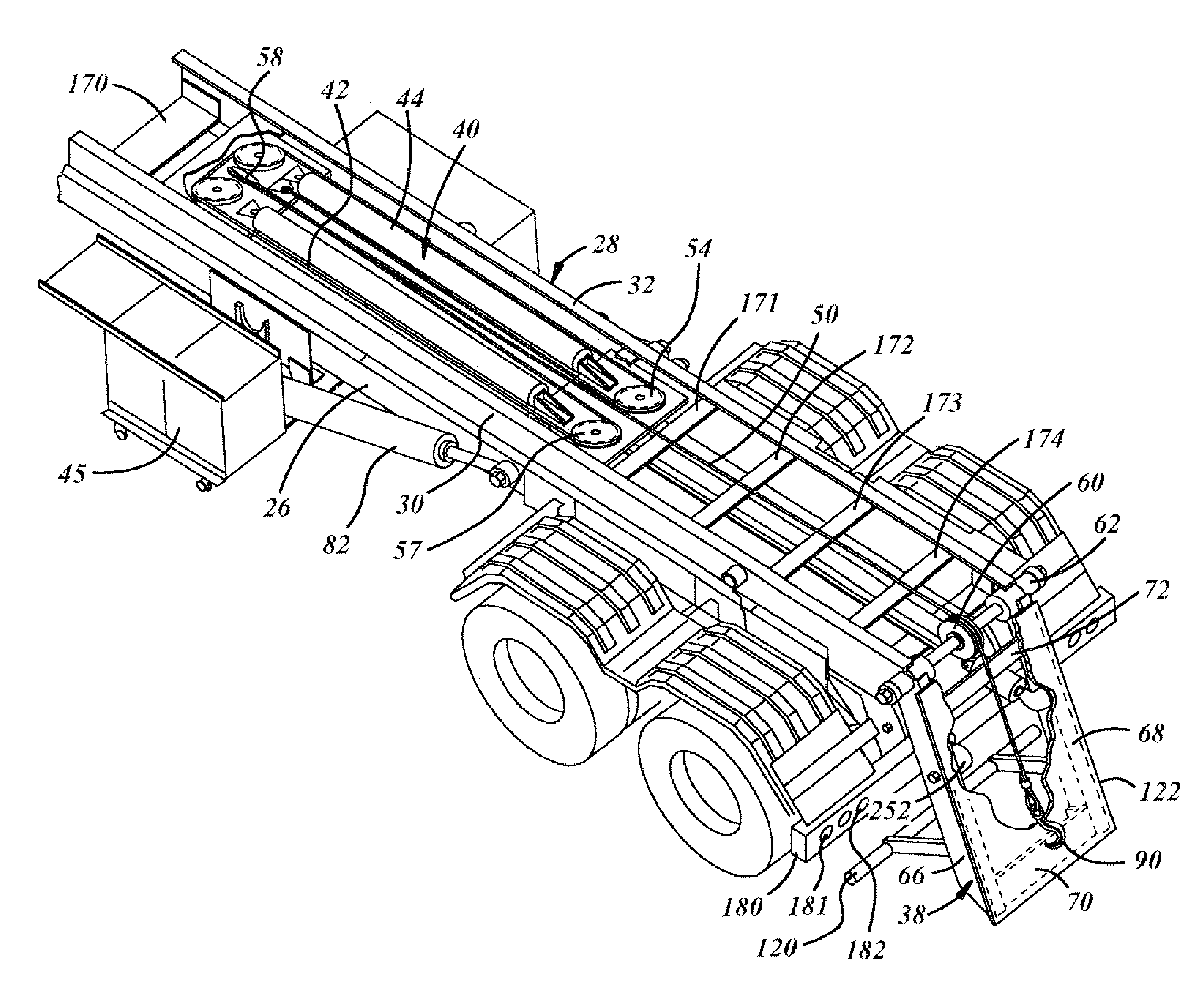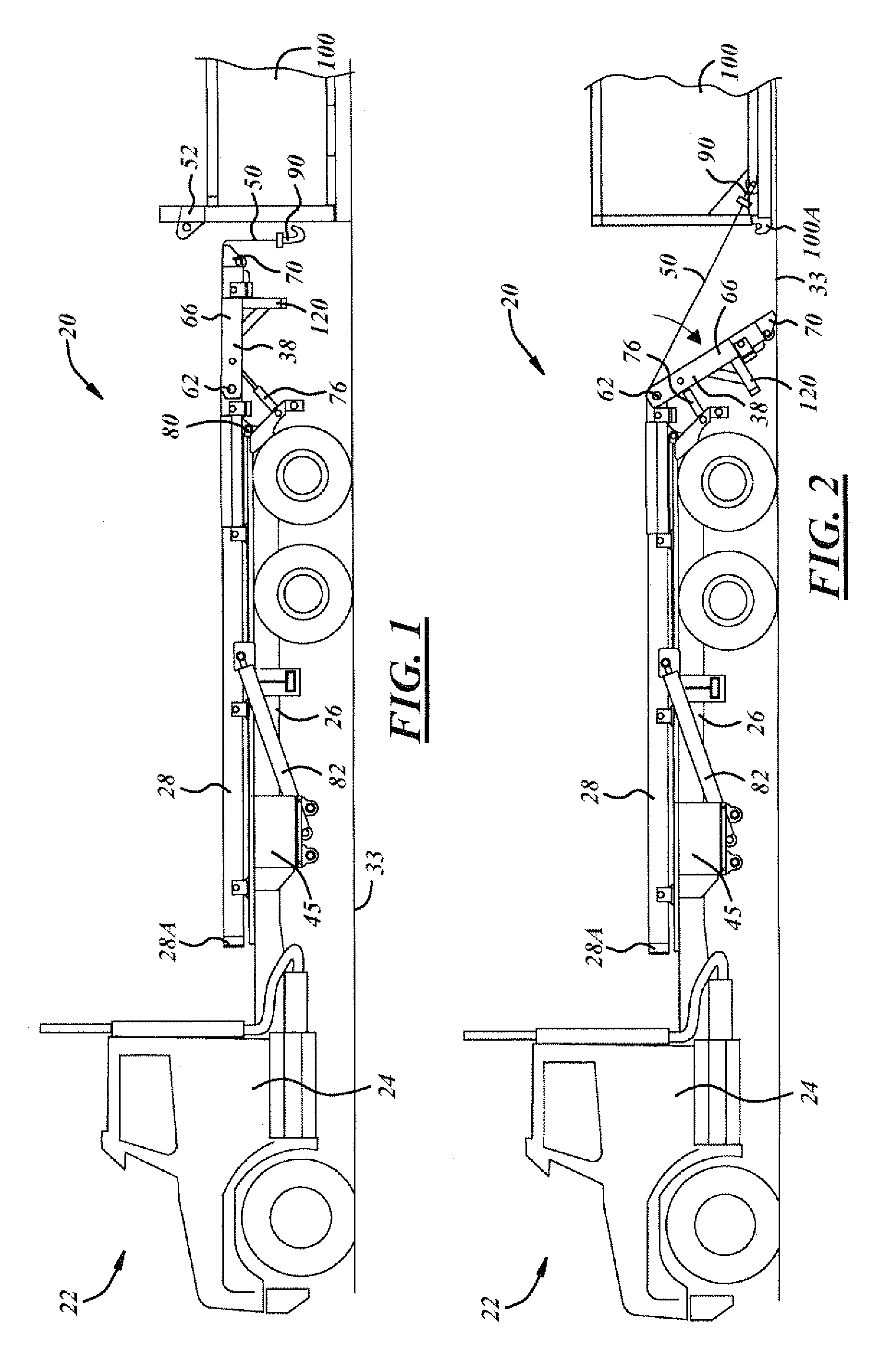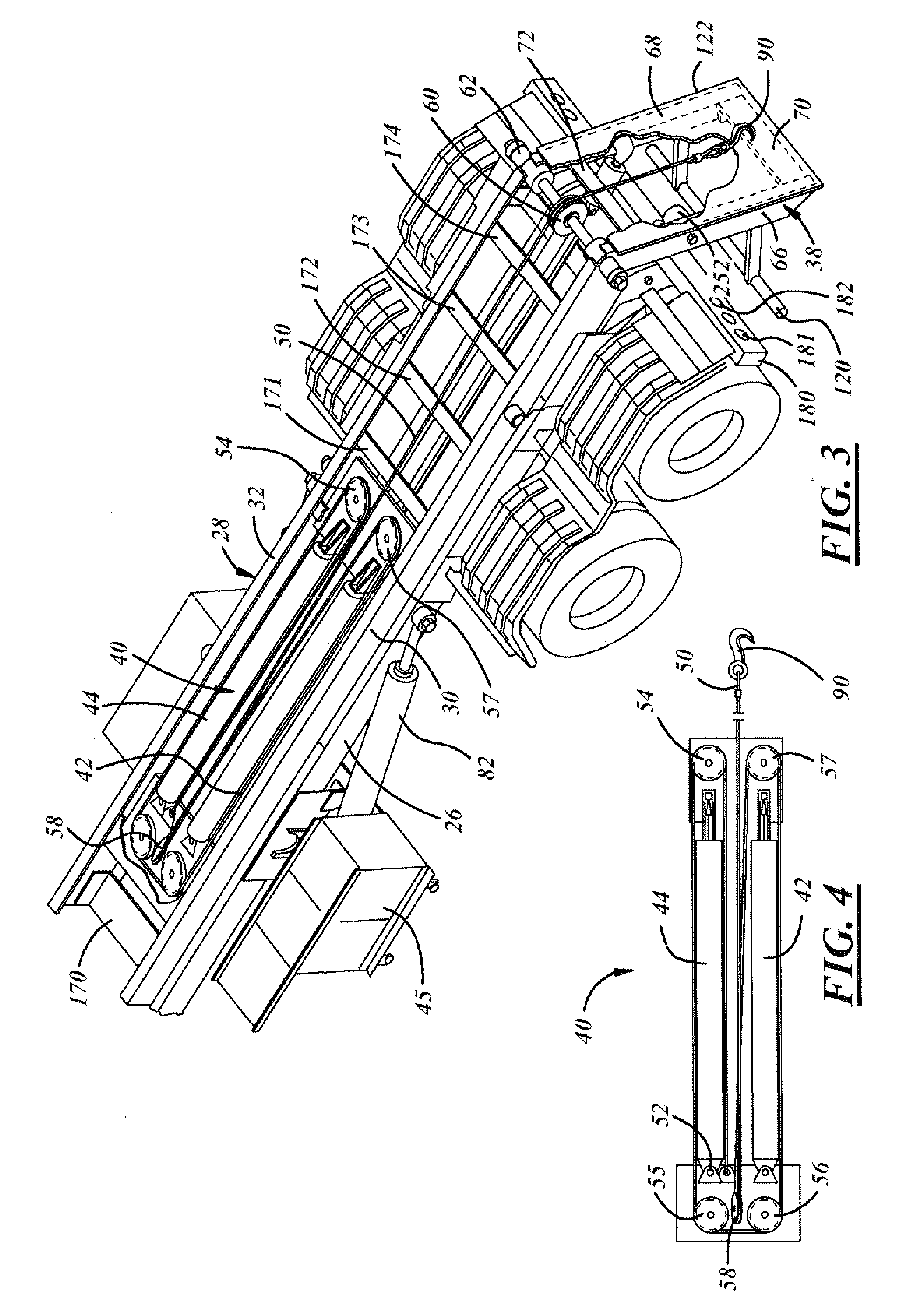Roll off hoist with hinged tail and hydraulic reeving system
- Summary
- Abstract
- Description
- Claims
- Application Information
AI Technical Summary
Benefits of technology
Problems solved by technology
Method used
Image
Examples
Embodiment Construction
[0028]A preferred embodiment of the present invention is shown in FIG. 1 and referred to generally by the reference numeral 20. The system 20 is adapted to be mounted on a vehicle 22 which typically consists of a cab portion 24 and a chassis or vehicle frame 26. The invention includes an elongated body 28, also known as a “tilt frame,” which is adapted to be mounted on the frame 26 of the vehicle 22.
[0029]As shown in FIG. 3, the tilt frame 28 includes a pair of side rails 30 and 32, a dual hydraulic cylinder reeving arrangement 40, and a hinged tail or end member 38. In this regard, the use of the term “container” is not meant to be limiting. Although it is anticipated that the invention will be used primarily on refuse containers, it can be used to load or unload virtually any structure or object known today, including storage containers and the like.
[0030]A pulley or sheave 60 is positioned on the tilt frame where the hinged tail member rotates to accommodate the cable movement. T...
PUM
 Login to View More
Login to View More Abstract
Description
Claims
Application Information
 Login to View More
Login to View More - R&D
- Intellectual Property
- Life Sciences
- Materials
- Tech Scout
- Unparalleled Data Quality
- Higher Quality Content
- 60% Fewer Hallucinations
Browse by: Latest US Patents, China's latest patents, Technical Efficacy Thesaurus, Application Domain, Technology Topic, Popular Technical Reports.
© 2025 PatSnap. All rights reserved.Legal|Privacy policy|Modern Slavery Act Transparency Statement|Sitemap|About US| Contact US: help@patsnap.com



